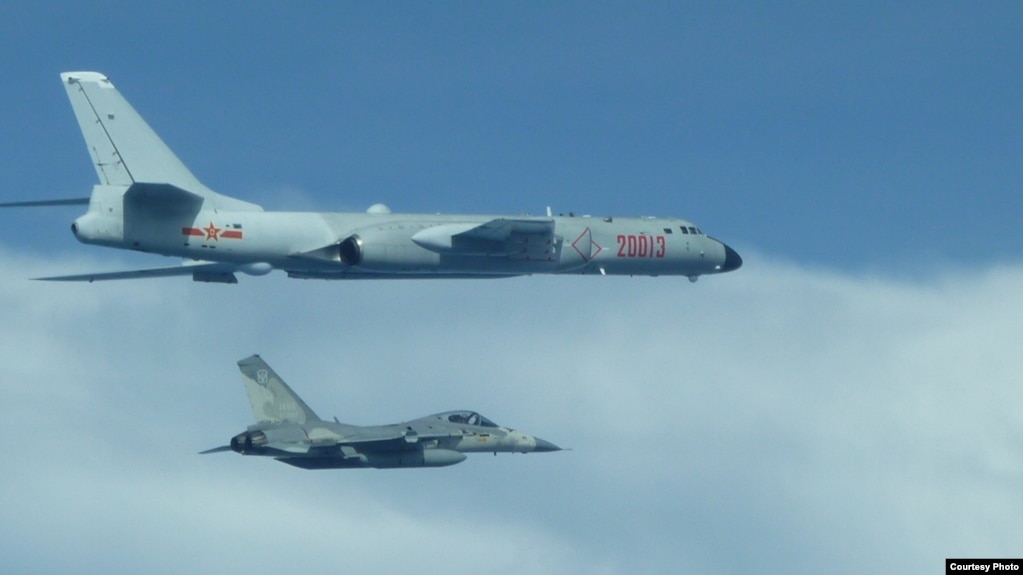
Taiwan says Chinese military airplanes have flown into its air defense space six times in a single week and at least eight times this month.
Some observers believe that Chinese leaders are using the flights to warn people as far away as Washington of the country’s power. They also say the military operations are helping to train Chinese forces in case of a conflict in Asia.
U.S.-China relations
The United States has been closely watching China and its leadership in recent years. The U.S. government blames China for a trade dispute between the two sides. U.S. officials also accused China of ignoring the new coronavirus and COVID-19, the disease it causes, earlier this year.
U.S. naval ships have sailed six times this year through the strait separating Taiwan from China, a move that angers Chinese leaders. China claims sovereignty over Taiwan and criticizes other countries for supporting the island’s right to self-rule.
The U.S. navy has carried out four “freedom of navigation operations” in the South China Sea, near Taiwan, this year.
“I don’t think we can say it stops at Taiwan and then that’s it,” said Derek Grossman, a defense expert with the RAND Corporation, a U.S.-based research group.
“There’s definitely some signaling to the U.S., as well,” he said. “Anything they can do to try to signal to the U.S. that it should not be getting as cozy with Taiwan as it has been over the past few years, that’s an important thing.”
China’s military power
China is said to have the world’s third strongest armed forces. But the Chinese military lacks experience since its 1970s land war with Vietnam, experts say. They believe it wants to train for anything that comes up.
“We should say it this way, that China has multiple goals,” said Huang Kwei-bo of the international affairs college at National Chengchi University in Taipei.
Taiwan’s Ministry of National Defense said the Chinese planes observed this month had crossed over the outer parts of Taiwan’s air defense identification zone. Taiwanese air force planes fly alongside each Chinese aircraft until it leaves the area.
On Monday, the ministry reported that a Chinese H-6 bomber and a Chengdu J-10 fighter jet had flown through the southwestern part of Taiwan’s airspace.
“One China policy”
Chinese officials want Taiwan’s president, Tsai Ing-wen, to support a “One China” policy as the condition for future talks. Tsai rejects the condition and most Taiwanese have told government researchers they want at least some form of self-rule, not China’s goal of unification. China has claimed the island as its own since the Chinese civil war of the 1940s.
China has accused the United States of trying to stop Chinese expansion at sea. Australia and Japan have sent their own ships into the South China Sea to show China the waterway is open internationally. U.S. officials historically consider Taiwan, Japan, South Korea, and the Philippines as allies against any conflict with China.
The U.S. Senate is working on a plan known as the Pacific Deterrence Initiative. The bill includes a special budget of $1.4 billion in the plan’s first year for U.S. military activity in Asia and $5.5 billion in its second year. If passed, the measure is expected to provide money for U.S. naval forces in the Western Pacific.
Pressure at home over COVID-19 and military moves directed at China are pressuring Chinese President Xi Jinping to show strength. That is the opinion of Huang Chung-ting of the Institute for National Defense and Security Research in Taipei.
“Xi Jinping’s attitude now is that he can’t fail,” Huang said. “He’s got to show he’s still got a lot of means. Whenever the external pressure goes up one point, he’s got to answer by ramping it up two points.”
Taiwan has sent its marine forces to the Pratas Islands, in the South China Sea, because of China’s movements, news media reported this week.
China’s planes have yet to fly near Taiwan’s main island and they probably will leave the air defense zone shortly after crossing into it, Huang Kwei-bo said. “We should feel worried, but not over-worried,” he added.
Words in This Story
sovereignty – n. power
cozy – adj. providing a feeling of warmth; restful
multiple – adj. having or involving several parts
attitude – n. a settled way of thinking about someone or something
We want to hear from you. Write to us in the Comments Section.